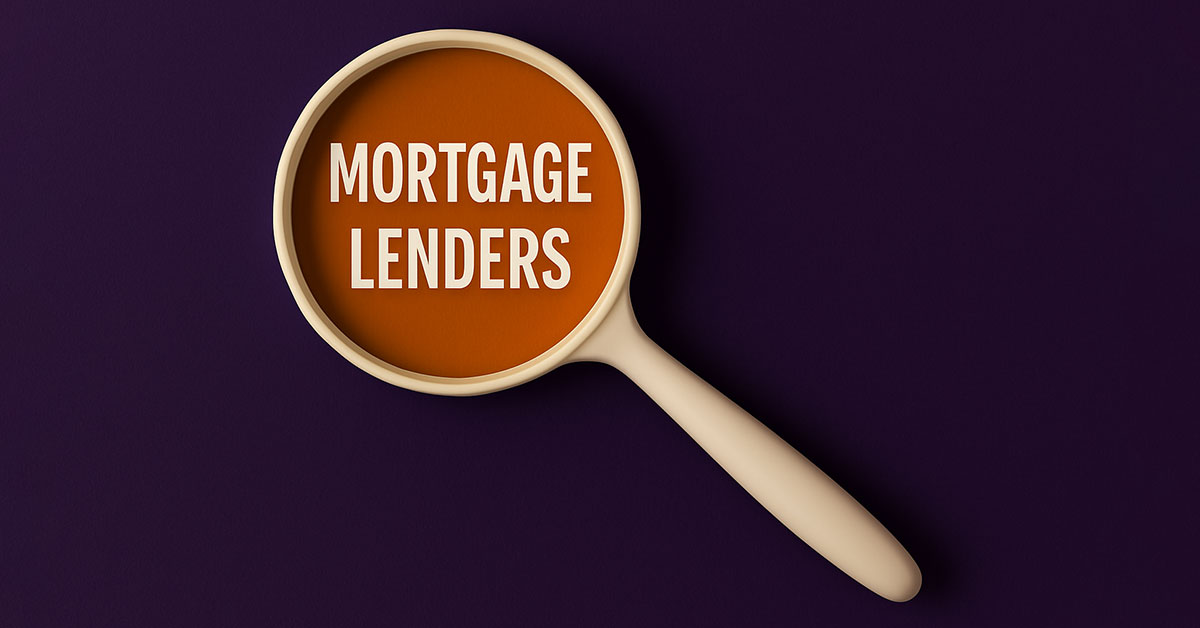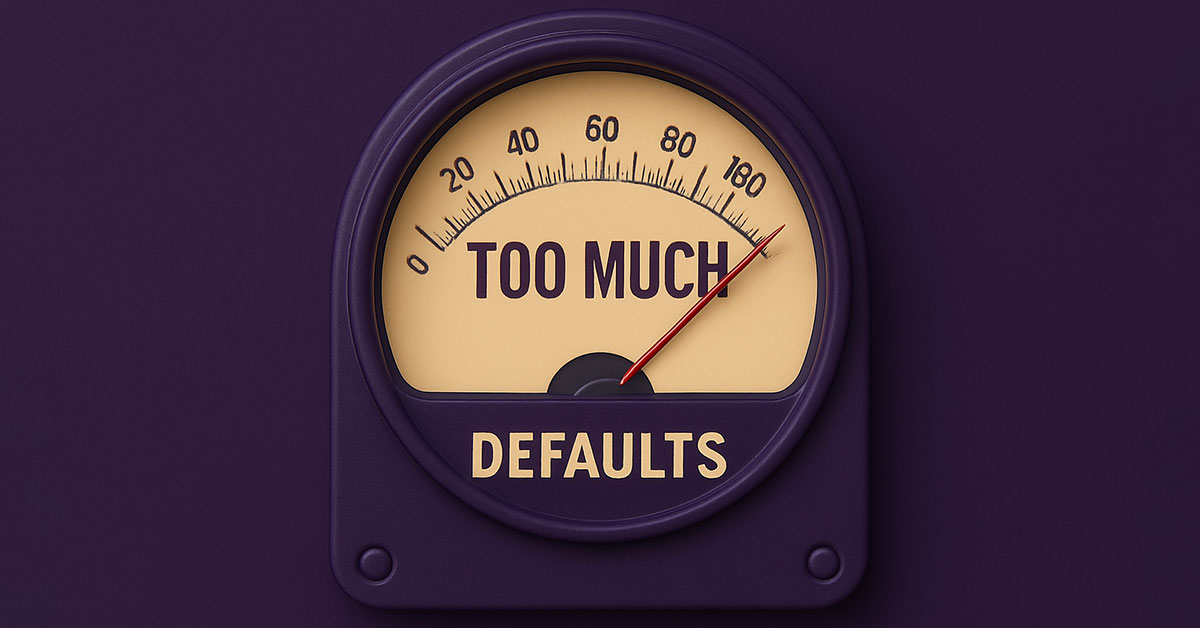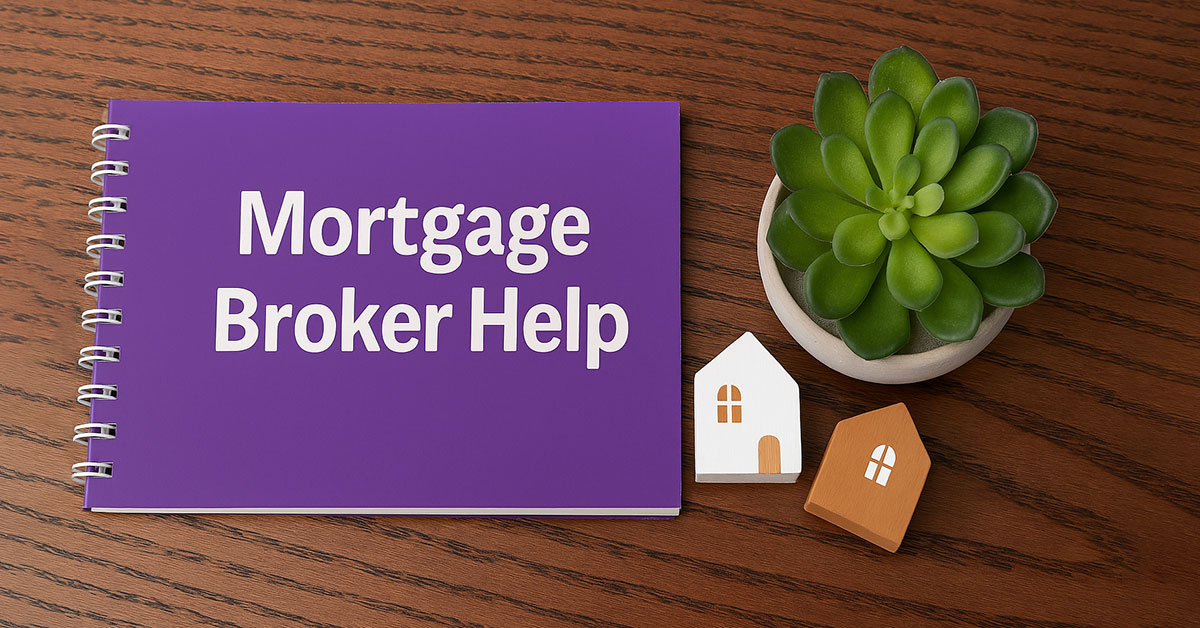It’s easy to get behind on your finances — a job change, a rough patch, an unexpected bill.
One missed payment turns into two. A default notice shows up on your credit file. And suddenly, buying a home feels out of reach.
But here’s the thing: a default doesn’t always mean “no.”
Depending on when it happened and how it was handled, you can get a mortgage with a default. Plenty of people do.
This guide walks you through what mortgage lenders will look at and how a mortgage broker can help you. What to do next if your credit score is less than perfect.
What Is a Default and How Does It Affect Your Credit File?
A default happens when you’ve missed payments on a credit account, usually around 3 to 6 months. At that point, the lender can issue a default notice, and if the debt still isn’t paid, it becomes a formal default on your credit file.
That’s where things get tricky. Once registered, a default stays on your credit report for six years, whether you pay it off or not.
Here’s what it tells a mortgage lender:
- You didn’t keep up with the agreement on a previous debt
- You could be a higher risk for missing mortgage payments
- Your credit history has had some bumps
But — and this is important — not all defaults are viewed the same.
Some specialist mortgage lenders will look at how old the default is, whether it’s been settled, and what kind of account it came from. A single, small mobile phone contract default from five years ago? That’s a very different picture from a large unpaid loan from last year.
So yes, a default matters — but it doesn’t automatically block you from getting a mortgage. It’s just one part of the credit report or story.
Can You Still Get a Mortgage If You’ve Had a Default?
Yes — you can. A default might make things harder, but it doesn’t mean you’re out of options.
Plenty of people with defaults still get approved for mortgages. The key is knowing which mortgage lenders to approach and wether they consider adverse credit mortgages— and how to present your situation clearly.
What lenders look at
When you apply for a mortgage with a default, mortgage lenders won’t just see the red flag and walk away. They’ll dig into the details:
- When the default occurred — Older is better.
- How many defaults you have — One or two? Often fine. More than that? Still possible with the right lender.
- Whether the defaults are satisfied — Paid defaults carry less risk.
- What the default was for — A missed mail order account isn’t the same as a loan or credit card.
- How your credit looks now — If your recent credit history is clean, that goes a long way.
Some high street lenders are strict. One default and you’re out. Others might accept older, satisfied defaults — especially with a bigger deposit.
But if you’ve got multiple defaults, or recent ones, you’ll likely need a specialist lender — and probably a mortgage broker to guide you through it.
Which Mortgage Lenders Accept Defaults?
Not all lenders are created equal, especially when it comes to a getting a mortgage with bad credit.
Some mortgage lenders stick to strict rules and won’t go near a default. Others are much more open, especially if the rest of your mortgage application is solid.
High street lenders: mostly a no
Most high street lenders won’t approve a mortgage if you have a recent or unpaid default, especially if there are multiple defaults on your credit report. Some may consider older, satisfied defaults, but you’ll usually need:
- A strong deposit (often 20%+)
- Clean credit since the default
- A good income and low financial commitments
Even then, approval isn’t guaranteed.
Specialist lenders: more flexible
This is where most people with defaults find success.
Specialist mortgage lenders are used to dealing with bad credit, default notices, payments that have been missed, and complicated credit histories. They look at your full story, not just your credit score.
They might accept:
- Recent defaults (sometimes under 12 months old)
- Unsatisfied defaults
- Multiple defaults
- Defaults on things like mobile phone contracts or mail order accounts
You won’t usually find these lenders on comparison sites. They work through mortgage brokers, who know their criteria and can match you to the right one.
Real-world insight
We’ve helped clients with defaults as recent as 6 months ago — even unpaid — find competitive mortgage deals. The key was choosing the right lender, showing affordability, and presenting the case properly.
How Many Defaults Is Too Many?
It’s a fair question — and one that doesn’t have a fixed answer.
Some mortgage lenders might accept one or two defaults without much fuss. Others might still consider you with three, four, or more — but only if the rest of your credit profile and mortgage application hold up.
General guide (not a hard rule)
- 1–2 defaults: Often fine with both high street and specialist lenders, especially if they’re satisfied and over a year old.
- 3–4 defaults: Still workable, but you’ll likely need a specialist mortgage lender and a bigger deposit.
- 5+ defaults: Tougher, but not impossible. It depends on the size, age, and context of the defaults.
What matters more than the number
Lenders also consider:
- When the defaults occurred — The older they are, the better.
- Whether they’ve been settled — Satisfied defaults are easier to work with.
- What the defaults were for — A few small ones on non-priority debts? Less serious.
- Your recent credit behaviour — Clean since the defaults? That helps a lot.
Sometimes it’s not about how many defaults, but what story they tell. That’s where working with a mortgage broker makes a real difference — they can help explain that story to the right lender.
Do Defaults Need to Be Satisfied Before You Apply?
Defaults don’t always have to be fully satisfied, but it definitely helps.
A satisfied default means you’ve paid off the debt. An unsatisfied default means it’s still outstanding. While both will still appear on your credit file, most mortgage lenders view satisfied defaults more favourably.
Why satisfied defaults are better
From a lender’s point of view, a default that has been satisfied shows you’ve taken responsibility. It doesn’t erase the issue — but it shows you’ve done what you can to make it right.
This can:
- Open the door to more mortgage deals
- Reduce the lender’s concern about future missed mortgage payments
- Lower the lender’s risk, which may mean better rates
Can you still get a mortgage with unsatisfied defaults?
Yes — especially with specialist lenders.
Some will accept unsatisfied defaults if:
- They’re small (under £500)
- They happened over a year ago
- You’ve had clean credit history since
But the number of mortgage lenders willing to accept this is smaller. You’ll likely need a larger deposit, and your interest rate may be slightly higher.
Should you pay off your default first?
If it’s possible — and won’t drain your deposit — yes. Settling a default just before applying can improve your chances and may even save you money over the life of your mortgage.
When Does a Default Stop Affecting Your Mortgage Chances?
A default won’t hold you back forever. Over time, its impact fades, and eventually, it disappears from your credit file entirely.
But until then, how much it affects your mortgage chances depends on a few things: how old it is, whether it’s satisfied, and which mortgage lender you apply to.
Timeline of impact
Here’s how most lenders see it:
- Less than 12 months old – Most high street lenders will decline. A few specialist lenders may still consider you, with conditions.
- 1–3 years old – Many specialist mortgage lenders will be open, especially if the default is satisfied and your recent credit history is clean.
- Over 3 years old – Much easier. Lenders tend to be more relaxed, especially with a decent deposit.
- After 6 years – The default drops off your credit report completely. Most lenders won’t see it at all.
Tip: it’s not just age — it’s context
A five-year-old default that’s still unpaid might be treated more harshly than a two-year-old one that’s been settled. And if you’ve had no missed or late payments or issues since, that strengthens your case massively.
If you’re unsure whether to apply now or wait a bit longer, speak to a mortgage adviser first. They’ll help you time it right — and avoid unnecessary declines.
What If You Have Other Bad Credit Too?
A default on its own can raise concerns. But if you’ve got other credit issues as well — things like late payments, CCJs, or even several defaults — lenders will look at the bigger picture.
The good news? Bad credit doesn’t always mean bad news. But it does mean choosing the right lender matters more than ever.
Common credit issues lenders see alongside defaults
- Missed payments – On loans, cards, utilities, or phone bills
- CCJs (County Court Judgments) – Especially if unsatisfied
- Multiple defaults – Sometimes from the same default being passed between lenders or a debt collector
- High credit usage – Maxed-out cards or overdrafts
- Recent borrowing – Taking on new debt just before applying
How it affects your application
The more issues you have, the fewer mortgage lenders will be available — especially if they’re recent. But that doesn’t mean no one will consider you.
Specialist mortgage lenders are used to dealing with complex credit files. They’ll look at:
- How much the debt was for
- How long ago it happened
- Whether anything has been settled
- How stable things look now
You may need a bigger deposit, and your rates might be a little higher to start — but many clients in this situation still get approved, and later remortgage onto better deals.
Related Reading: Can You Get a Mortgage with a CCJ?
How a Mortgage Broker Can Help If You’ve Had a Default
Getting a mortgage with a default is possible — but it’s rarely simple.
That’s where a mortgage broker makes all the difference. Especially one who’s used to dealing with bad credit, specialist lenders, and complex cases.
Why go through a broker?
- They know which lenders accept defaults
Not every lender is open to defaults, and most don’t advertise their criteria clearly. A broker will steer you away from automatic declines and match you with lenders who are more likely to say yes. - They’ll present your case properly
Defaults don’t define you, but they do need explaining. A good broker can build a case that gives lenders confidence, even if your credit report looks rough. - They’ll protect your credit score
Applying to the wrong lender can hurt your credit file even more. Brokers help avoid multiple hard checks that could reduce your credit rating further. - They may get you better deals
You won’t always find the best mortgage deals on a comparison site — especially if you’ve got adverse credit. Many lenders that specialise in adverse mortgages only work through brokers.
Ways to Improve Your Mortgage Chances After a Default
Even if your credit scores with the different credit reference agencies include a default (or a few), there’s still plenty you can do to boost your chances of getting approved — and maybe even unlock better mortgage deals.
Here’s where to start:
- Settle any outstanding defaults
Turning an unsatisfied default into a satisfied default can instantly improve how lenders view your application. - Build up your deposit
The more you can put down, the more likely lenders are to overlook a patchy credit history. How much deposit do you need? Aim for at least 15–20% if possible — more if you’ve had several defaults. - Check your full credit report
Look at all three major credit reference agencies — Experian, Equifax, and TransUnion. Sometimes defaults are wrongly listed or duplicated from the same default being sold on. Use Check My File to Boost Your Credit Score - Avoid new credit before applying
Don’t apply for loans, cards, or credit facilities just before submitting your mortgage application. It can signal financial instability. - Keep payments clean from now on
Every on-time payment helps rebuild your credit record. Every late payment adds more risk. - Work with a broker early
The sooner you speak to a mortgage adviser, the better. They’ll help you understand your position and what lenders will see — before you risk a decline.
Final tip: Lenders look at trends. If your default was two years ago and everything since has been steady? That’s a strong sign you’ve moved on from the problem.
FAQs: Getting a Mortgage with a Default
Can you get a mortgage if you have defaults?
Yes — even with defaults on your credit file, it’s still possible to get approved for a bad credit mortgage. Your chances depend on how recent the defaults are, how many you have, whether they’re satisfied, and which mortgage lender you apply to. The right lender, combined with a strong case and deposit, can make all the difference.
Has anyone got a mortgage with defaults?
Definitely. We’ve worked with plenty of people who’ve had defaults, sometimes even recent or unpaid ones, and still secured a mortgage. It’s more common than you’d think. Lenders that deal with bad credit see this all the time, and many are happy to lend if the rest of your mortgage application is solid.
Can I get a mortgage with a 2-year-old default?
Yes — two years is a key milestone. Many specialist mortgage lenders will consider your mortgage application once a default is over 12–24 months old, particularly if it's been satisfied. A clean credit history since then, along with a good deposit and affordability, can go a long way.
Can a default be removed from your credit history?
Only if it was added in error. If the default is accurate, it will remain on your credit report for six years from the date it was registered. Even after it’s satisfied, it stays visible — but some lenders care more about your recent behaviour than what happened years ago.
How long do lenders look at defaults?
Most lenders focus on the age of the default. If it’s recent (under 12 months), you’ll likely need a specialist mortgage provider. If it’s older, especially over 3 years, more options open up. Once it hits the 6-year mark, it’s removed from your credit file and won’t be factored into most decisions.
What is the lowest credit score for a mortgage?
There’s no official minimum. Each lender uses their own scoring system, which often isn’t visible to the public. That said, you can still get a mortgage with a default and a low credit rating if you meet other criteria, like a bigger deposit, steady income, and low financial commitments.
Will a default stop me getting a mortgage with a high street lender?
In many cases, yes — especially if the default is recent, large, or unpaid. High street lenders tend to prefer applicants with clean credit records, though some may make exceptions for older, settled defaults. If your situation is complex, a specialist or bad credit mortgage or specialist lender is more likely to say yes.
What if my default was on a mobile phone or mail order account?
These types of defaults are often seen as less serious than ones tied to loans or credit cards, particularly if they’re small and now satisfied. Some lenders may overlook them, especially if they’re over 1–2 years old and you’ve had no other issues since.






